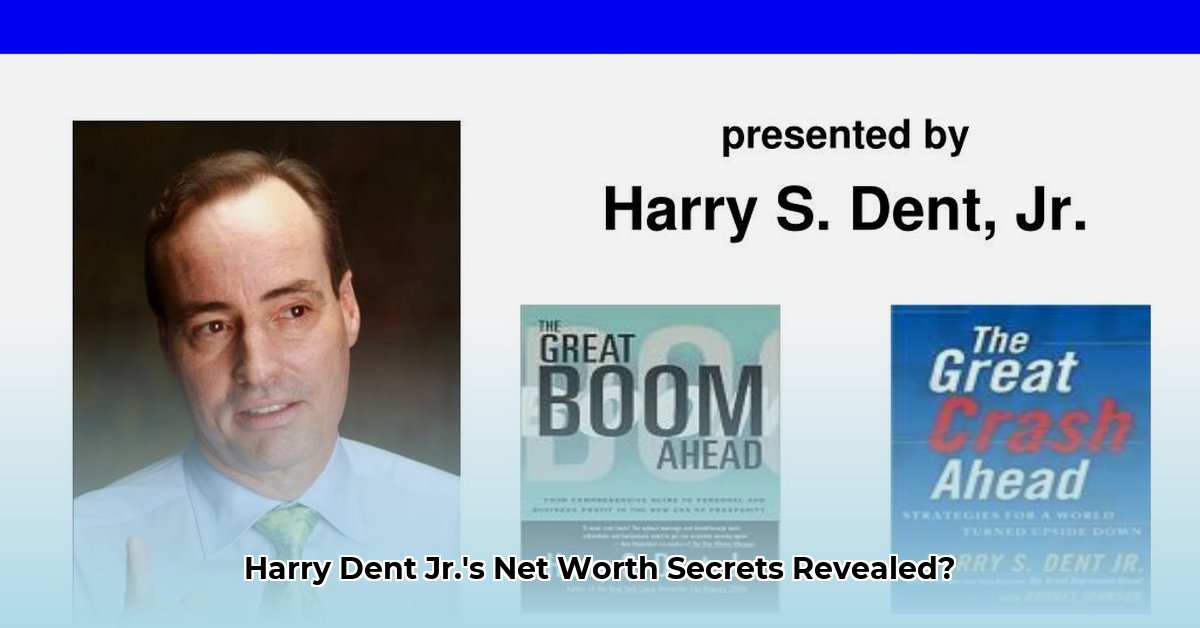
Harry Dent Jr.'s Net Worth and the Spending Wave Theory: A Critical Analysis
Harry Dent Jr. is a prominent figure in the world of economic forecasting, known for his controversial yet influential "Spending Wave Theory." While his estimated net worth of approximately $6 million in 2025 is a point of interest, the true value of his work lies in understanding its strengths and weaknesses. This article provides a balanced perspective on Dent's theory, offering actionable insights for navigating the complexities of economic prediction.
Understanding the Spending Wave Theory
At its core, Dent's theory posits that economic cycles are driven primarily by the spending habits of different generations. Younger generations, typically saving for major life events, exhibit lower spending than their middle-aged counterparts, who are often at peak earning potential. As people retire, spending tends to decrease. Dent argues these generational spending shifts create predictable "waves" shaping economic trends. He visually represents these cycles, creating an intuitive understanding of the theory's core mechanics. This simplicity is a key aspect of the theory's appeal.
However, isn't it true that the simplicity that makes Dent's theory accessible also makes it vulnerable to criticism? Isn't it oversimplifying a remarkably complex system? The reality is far more nuanced.
A Balanced Critique: Evidence and Limitations
Dent's supporters point to instances where his predictions seemingly aligned with market realities, particularly regarding the impact of the Baby Boomer generation. His attempt to integrate technological advancements into his demographic models, making them (somewhat) more relevant to current times, is also often cited as a strength.
Yet, critics argue that the theory is overly simplistic and deterministic. It assumes demographic trends are the sole driver of economic change, overlooking crucial factors like government policies, technological disruptions, and unforeseen global events. A significant limitation is the model's reliance on precise population data and consistent assumptions about future consumer behavior – both incredibly difficult to achieve with complete accuracy. Given these flaws, can we trust his forecasts?
Actionable Insights: Integrating Dent's Perspective into Your Strategy
While Dent's predictions shouldn't be taken as gospel, they can offer valuable insights when integrated cautiously into broader investment strategies:
Diversify your portfolio: Never rely on a single prediction. Diversification across asset classes significantly mitigates risk.
Adopt a long-term perspective: Dent's theory is best suited for long-term planning, not short-term trading. Patience and long-term vision are crucial.
Consider generational spending patterns: Analyze asset classes that may benefit from future spending shifts. For example, a growing elderly population could boost demand in the healthcare sector.
Maintain critical thinking: Always question the underlying assumptions and consider external factors that may influence the outcome. Don't blindly follow any single forecast.
Conclusion: Navigating Economic Uncertainty
While Harry Dent Jr.'s net worth reflects the attention his theory has garnered, the key takeaway is the crucial need for a balanced perspective. The Spending Wave Theory offers a valuable framework, but its limitations must be acknowledged. Economic prediction is far from an exact science, and solely relying on demographic trends is risky. Combining Dent's insights with a broader approach to economic analysis, involving careful diversification and professional advice, yields a more robust and effective financial strategy. This cautious approach allows us to leverage insights while mitigating potential risk.